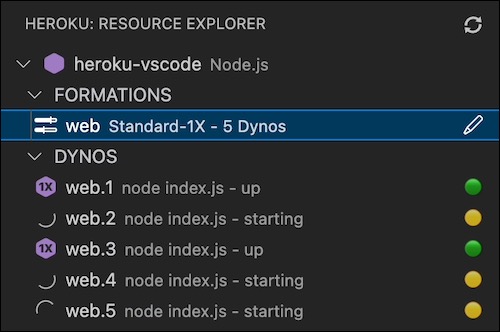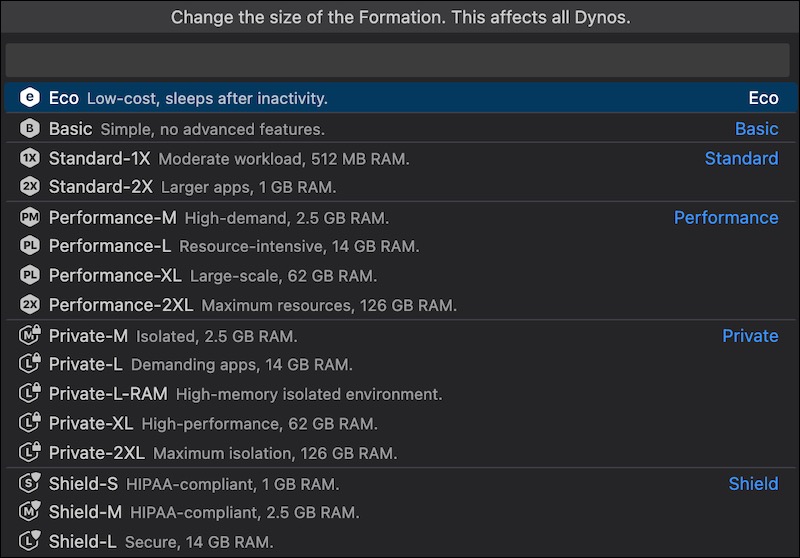Table of Contents [expand]
Last updated March 05, 2025
Manage your Heroku app’s dynos with the Heroku VS Code extension. Use the Heroku extension to scale your app and monitor and manage individual dynos.
Scale Your App
To change the number of dynos running your app:
- Open the Heroku extension in the Activity Bar.
- Select the app in the
Heroku Resource Explorer. - Right-click on your dyno formation.
- Select
Change dyno count. - Enter the desired number of dynos. Valid dyno ranges are enforced based on your account limits.
We recommend you scale dynos during low-traffic periods to minimize service interruption and maintain dyno counts based on your app’s needs.
Manage Individual Dynos
You can restart, stop, and monitor dynos from the Heroku VS Code extension.
Monitor Dyno Status
You can monitor real-time status information for an app’s dynos in the Heroku Resource Explorer under DYNOS:
- Running (green circle): Dyno is operating normally.
- Starting or Restarting (yellow circle): Dyno is starting or restarting.
- Crashed or Stopped (red circle): Dyno has stopped or crashed and requires attention.

We recommend monitoring dyno status regularly.
Restart a Dyno
Restarting a dyno causes a brief interruption in service for that instance.
- Right-click on the dyno you want to restart in the
Heroku Resource Explorer. - Select
Restart.
Stop a Dyno
Stopping a dyno causes an interruption in service for that instance.
- Right-click on the dyno you want to stop in the
Heroku Resource Explorer. - Select
Stop.
The dyno shuts down and its status updates accordingly.
Change Dyno Sizes
Changing dyno sizes triggers a restart of the affected dynos.
To modify your dyno’s compute resources:
- Right-click on your dyno formation in the
Heroku Resource Explorer. - Select
Change dyno sizes. - Choose from the available options:
- Eco
- Basic
- Standard
- Performance
- Private
- Shield

Troubleshooting Dynos
You may encounter errors when working with dynos:
- If scaling operations fail, verify your account limits and available resources.
- If a dyno crashes, check your app logs for detailed error information.
- If a dyno’s status appears stuck, try refreshing the
Heroku Resource Explorer.